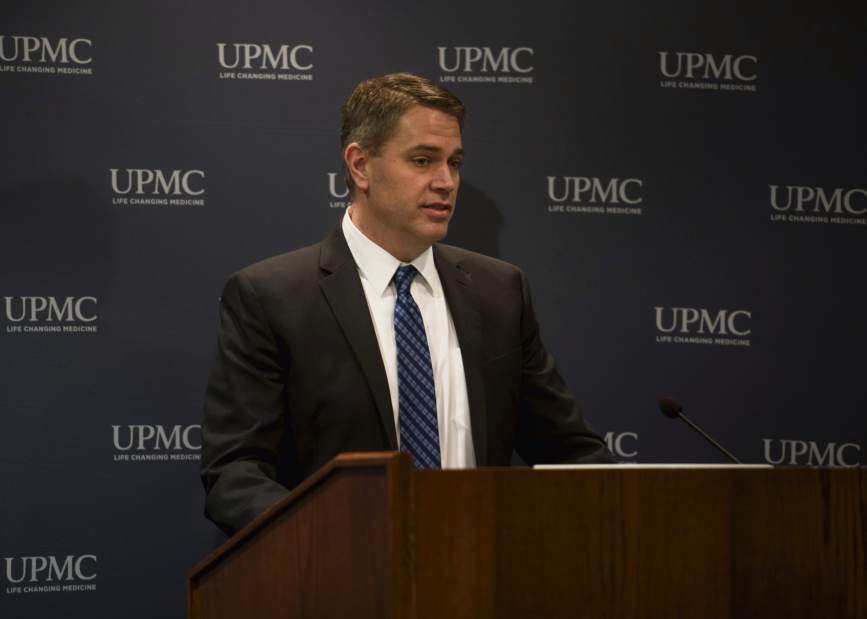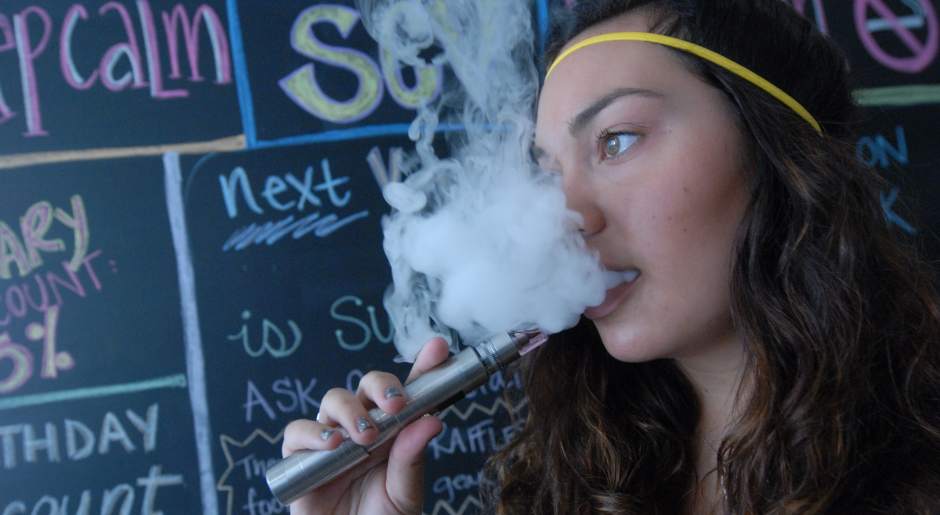UPMC docs support proposed vaping ban
Three UPMC doctors are urging Allegheny County Council members to approve the controversial ban on vaping in indoor public places.
Though an extensive amount of research has not yet been completed on the secondhand effects of inhaling the vapor, enough evidence exists to justify banning e-cigarettes everywhere regular cigarettes are banned, the doctors said.
"It's very appropriate to think of an e-cigarette as a cigarette for purposes of regulation," Dr. Michael J. Lynch, medical director of the Pittsburgh Poison Center and a UPMC physician, said during a news conference Monday. "We know that those exposed to secondhand vapor have similar levels of nicotine in their blood as people exposed to secondhand cigarettes."
The legislation, which is expected to be voted upon during council's meeting Tuesday, would ban e-cigarettes in indoor workplaces, schools, restaurants, health care-related properties, theaters, sports facilities and transit stations.
Vapers use battery-operated devices that heat liquids containing varying amounts of nicotine that is inhaled, then exhaled as vapor.
Inhaling the vapor secondhand could be as dangerous as cigarettes, in some cases, and is dangerous at any level, said Dr. Brian A. Primack, assistant vice chancellor for research on health and society at the University of Pittsburgh.
"I'm convinced that the aerosol that comes out has a lot of the same chemicals, and there have been studies that find those chemicals in the blood of people, so secondhand exposure is real," Primack said.
Vapor, which the doctors prefer to call "aerosol," contains fewer ingredients than cigarette smoke but often still contains nicotine, tar, heavy metals and the carcinogen formaldehyde, Primack said.
Many vape shop owners and advocates like Bill Godshall, executive director of Smokefree Pennsylvania, for months have been urging council to reject the ordinance, saying the vapor is harmless when inhaled secondhand and is more effective at helping smokers quit compared to other methods such as a nicotine patch or chewing gum.
Primack disagreed, saying vaping does not help the majority of smokers quit.
The Annals of Internal Medicine published a study last month that shows e-cigarettes, like other nicotine replacements, are safer than regular cigarettes and can be used to help smokers quit.
The negative health effects on adolescents is one of the main arguments used in favor of the ban.
The Surgeon General published a report last year that found e-cigarettes, which are the most commonly used tobacco product among teens, are a public health concern for teens and pregnant women.
A UPMC study found nonsmokers who started smoking e-cigarettes are four times as likely as those who didn't to start smoking traditional cigarettes within the next year, said Dr. Stanley Marks, chairman of the UPMC CancerCenter.
Six Democrats on Allegheny County Council told the Tribune-Review last week they plan to vote in favor of the ban. Five Republicans said they will vote against it. One member plans to recuse himself.
That leaves three on the 15-member council, all Democrats, who have not said how they will vote.
The meeting will take place at 5 p.m. at the Allegheny County Courthouse's Gold Room, 436 Grant St., in Downtown Pittsburgh.
Theresa Clift is a Tribune-Review staff writer. Reach her at 412-380-5669 or tclift@tribweb.com.







